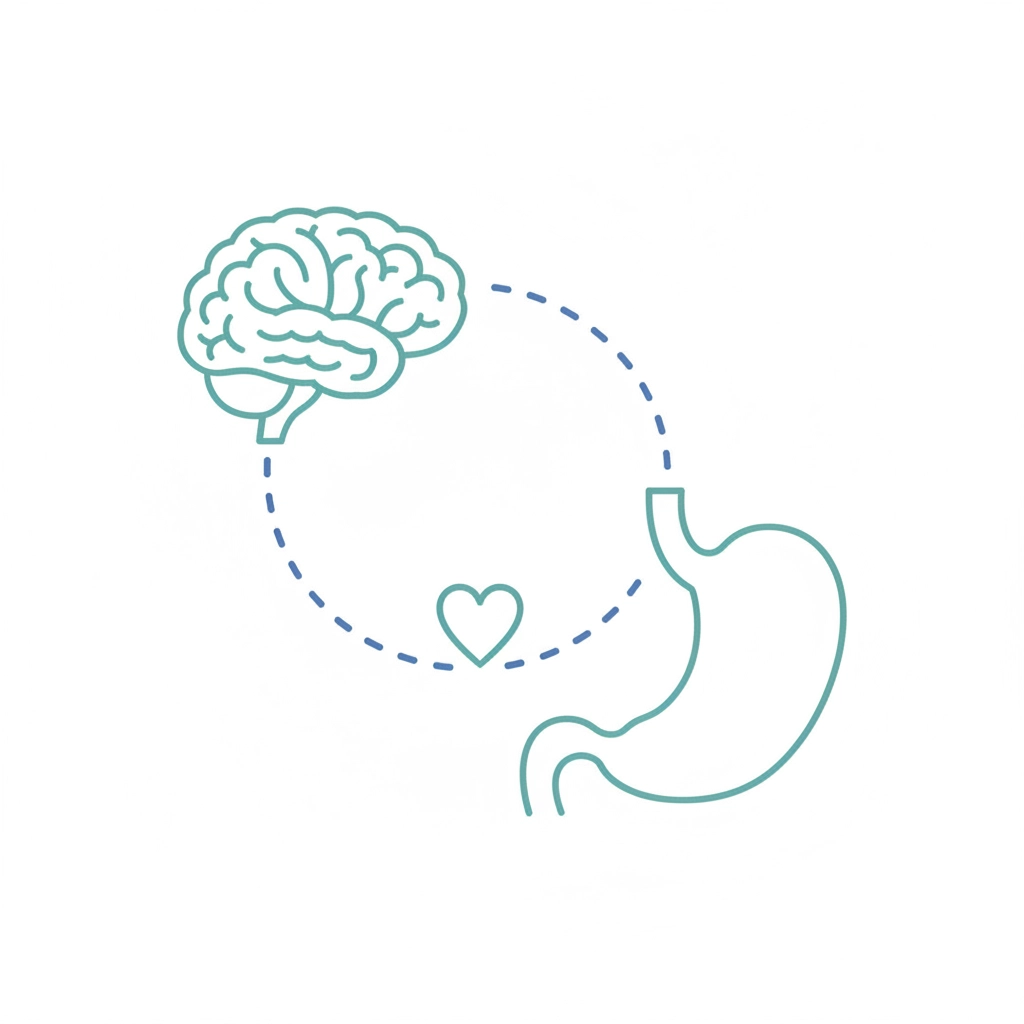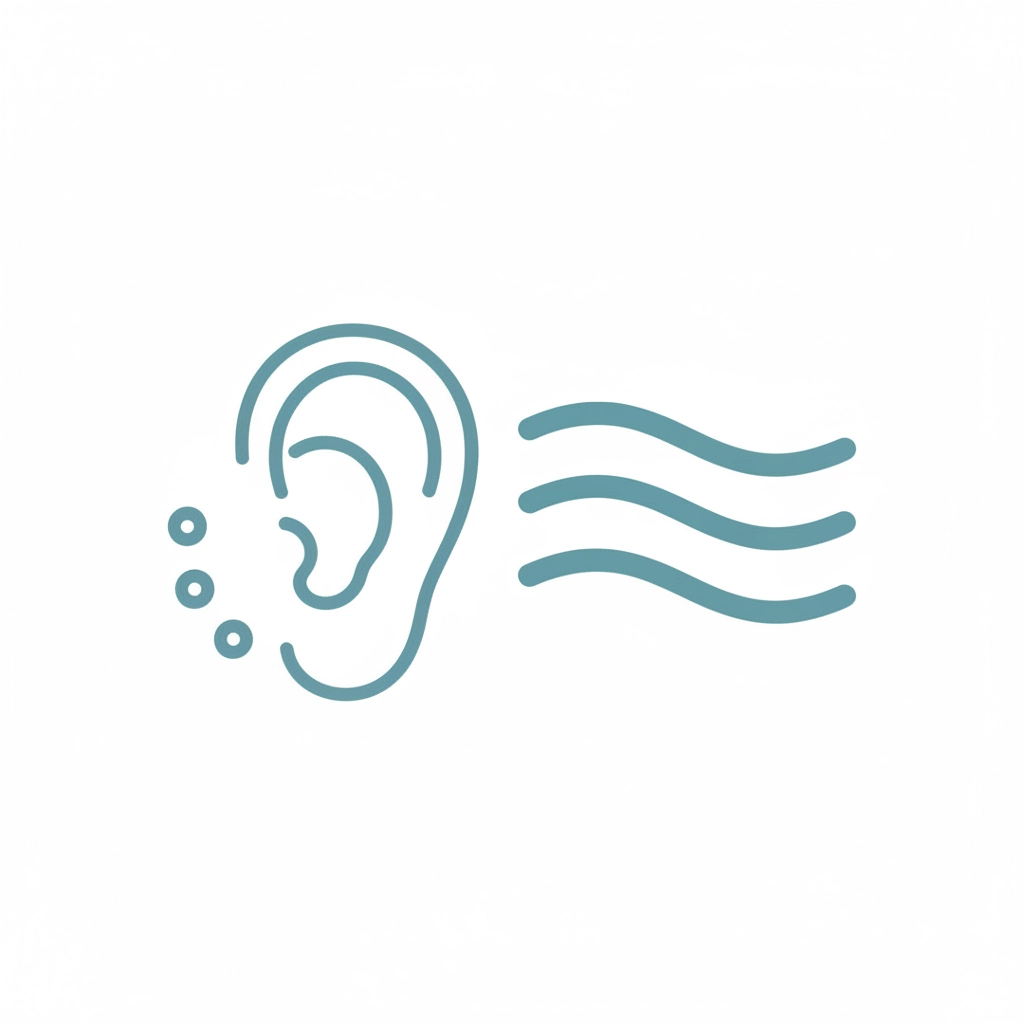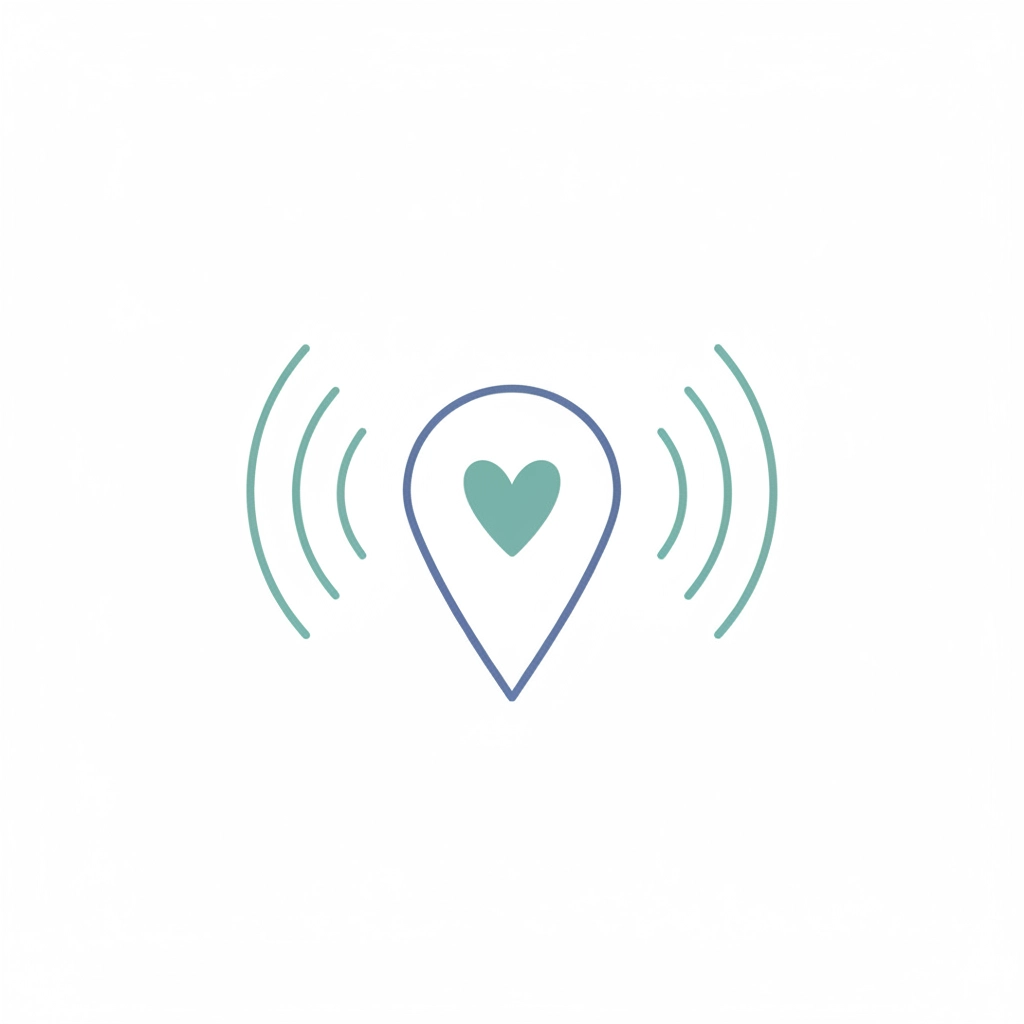Your Gut Is Controlling Your Anxiety: The Simple 5-Minute Daily Trick That Changes Everything
Okay, let's be real here. I've spent way too many mornings waking up with that familiar knot in my stomach: you know the one. That tight, churning feeling that shows up before your brain even has time to remember what you're anxious about today. For the longest time, I thought it was just "morning anxiety" or maybe too much coffee. Turns out, my gut was literally talking to my brain, and it had some pretty strong opinions about my mental state.
Who knew that the trillions of tiny organisms living in our digestive system were basically running a 24/7 text chain with our brains? Because honestly, nobody tells you this stuff when you're spiraling at 3 AM wondering why your chest feels tight and your stomach is doing backflips.
The Gut-Brain Highway Nobody Talks About
Here's what I wish someone had told me years ago: your gut and your brain are in constant communication through something called the gut-brain axis. It's not just some woo-woo wellness trend: this is actual science. The vagus nerve, which is basically the longest nerve in your body, connects your brain to your digestive system and carries messages both ways.
When the bacteria in your gut get out of whack (which happens more than we'd like to admit), they start sending SOS signals to your brain. Research shows that people with anxiety have significantly lower microbial diversity in their guts. Translation: when your gut bacteria are having a bad time, your brain feels it too.
I remember learning about this and thinking, "So you're telling me that my stomach issues and my panic attacks might actually be related?" Mind. Blown.

The science gets even more interesting. Studies have found that people with generalized anxiety disorder have lower levels of specific bacteria that produce something called short-chain fatty acids. These little compounds are like mood stabilizers that your gut makes naturally: when you don't have enough of them, anxiety can spike.
It's kind of wild to think that the same system that breaks down your lunch is also influencing whether you're going to have a good day or spend it feeling like you're waiting for the other shoe to drop.
The 5-Minute Reset That Actually Works
Now, here's where it gets practical. After months of trying everything from expensive probiotics to cutting out entire food groups (which, by the way, made me more anxious), I stumbled across vagus nerve stimulation. And honestly? It sounded too simple to work.
The technique is so straightforward it almost feels like a joke. You literally spend five minutes doing specific movements and breathing exercises that activate your vagus nerve. That's it. No special equipment, no supplements, nothing to buy.
Here's what I do every morning, and I swear it's changed everything:
The 5-Minute Gut-Brain Reset:
Start by finding a quiet spot where you won't be interrupted. I usually do this in my bedroom before anyone else is awake, but honestly, I've done it in bathroom stalls during particularly rough days at work.
First, place one hand on your chest and one on your stomach. Take a deep breath in for 4 counts, making sure your stomach hand moves more than your chest hand. This is harder than it sounds if you're used to shallow breathing (guilty as charged).
Then comes the weird part that actually works: gently rub the area behind your earlobes while you breathe. The vagus nerve starts back there, and this simple touch helps activate it. I felt silly the first few times, but honestly, who cares if it works?

Next, do the 4-7-8 breathing pattern. Inhale for 4, hold for 7, exhale for 8. Repeat this four times. During the exhale, imagine all that stomach tension just melting away. I know it sounds cheesy, but visualization actually helps your nervous system respond.
Finally, do some gentle abdominal tapping. Use your fingertips to lightly tap around your stomach area while taking normal breaths. This stimulates the vagus nerve from another angle and helps reset the gut-brain communication.
The whole thing takes maybe five minutes, and it's become as essential to my morning routine as coffee. Which, let's be honest, probably wasn't helping my anxiety anyway.
Why This Actually Makes a Difference
The reason this simple practice works comes down to how our nervous system operates. When we're anxious, we're stuck in fight-or-flight mode. Our sympathetic nervous system is basically screaming at our body to prepare for danger, even when the "danger" is just a work meeting or social situation.
Vagus nerve stimulation flips the switch to your parasympathetic nervous system: the rest-and-digest mode. This is where the magic happens. When your body shifts into this state, several things occur simultaneously: your heart rate slows down, your breathing deepens, your digestion improves, and those stress hormones that were making your gut churn start to calm down.
It's like hitting a reset button on the communication between your gut and brain. Instead of sending panic signals back and forth, they start having a more chill conversation.

I've noticed that when I skip this routine (which happens more than I'd like to admit), my anxiety tends to spike by midday. But on days when I stick to it, there's this underlying sense of calm that carries me through even stressful situations. It's not that problems disappear: it's more like I have a better foundation to handle whatever comes up.
The Music Connection We Didn't See Coming
Here's something interesting that I discovered by accident: certain types of music can enhance this gut-brain reset. Low-frequency sounds, particularly around 40Hz, can stimulate the vagus nerve. I started playing binaural beats or deep meditation music during my five-minute routine, and honestly, it amplifies the whole experience.
Sometimes I'll throw on some Bon Iver or Ólafur Arnalds: something with that deep, resonant quality that you can feel in your chest. The combination of the breathing exercises with music that literally vibrates through your body creates this incredible sense of grounding.
We've been exploring this connection more at Breathe N Bounce, looking at how sound and breathwork can work together to support mental health. It's fascinating how these holistic approaches that seemed totally separate actually complement each other so perfectly.
When the Spiral Starts
Let's talk about those moments when anxiety hits out of nowhere. You know what I mean: you're having a perfectly normal day, and suddenly your stomach drops and your mind starts racing. This five-minute technique works as an emergency reset too, not just as a morning routine.
I remember being in a grocery store a few months ago when I suddenly felt that familiar wave of panic starting to build. Instead of making a beeline for the exit (my usual strategy), I found a quiet corner near the pharmacy and did a modified version of the breathing exercises right there. Just focusing on that slow, deep breathing while gently pressing behind my ears for a couple of minutes was enough to calm the storm.
The beautiful thing about this practice is that it's so subtle. Nobody knows what you're doing. You're just breathing and maybe touching your ears: not exactly attention-grabbing behavior.

The Messy Reality of Healing
I want to be honest here: this isn't a magic cure for anxiety. There are still days when my gut feels like it's hosting a rave and my brain is the unwilling attendee. There are still moments when five minutes of breathing feels impossible because my thoughts are moving too fast.
But what's changed is that I have a tool now. Something simple and accessible that I can use when things get overwhelming. And more importantly, I understand that my anxiety isn't just "in my head": it's a whole-body experience that involves this complex communication system I never knew existed.
Some days the technique works better than others. Some days I forget to do it entirely and end up feeling scattered by noon. But that's okay too. We're all just figuring this out as we go, and being gentle with ourselves is part of the process.
The goal isn't to never feel anxious again: it's to have better tools for when we do. And honestly? A five-minute breathing routine that costs nothing and can be done anywhere feels like a pretty good place to start.
Starting Small, Growing Strong
If you're dealing with that gut-churning anxiety that seems to come out of nowhere, try this simple routine for a week. Just five minutes in the morning, before you check your phone or dive into the chaos of your day.
Notice how your stomach feels before and after. Pay attention to whether that afternoon anxiety spike feels any different. Be curious about what happens when you give your nervous system a chance to reset before the world starts making demands on your attention.
We don't have to figure this all out at once. We can start with ourselves, with something as simple as breathing and gentle touch, and see where it leads us. Sometimes the most powerful changes come from the smallest, most consistent actions.
And if nothing else, you'll have spent five minutes each day being kind to yourself. In a world that often feels like it's moving too fast and demanding too much, that alone is worth celebrating.

No comments:
Post a Comment